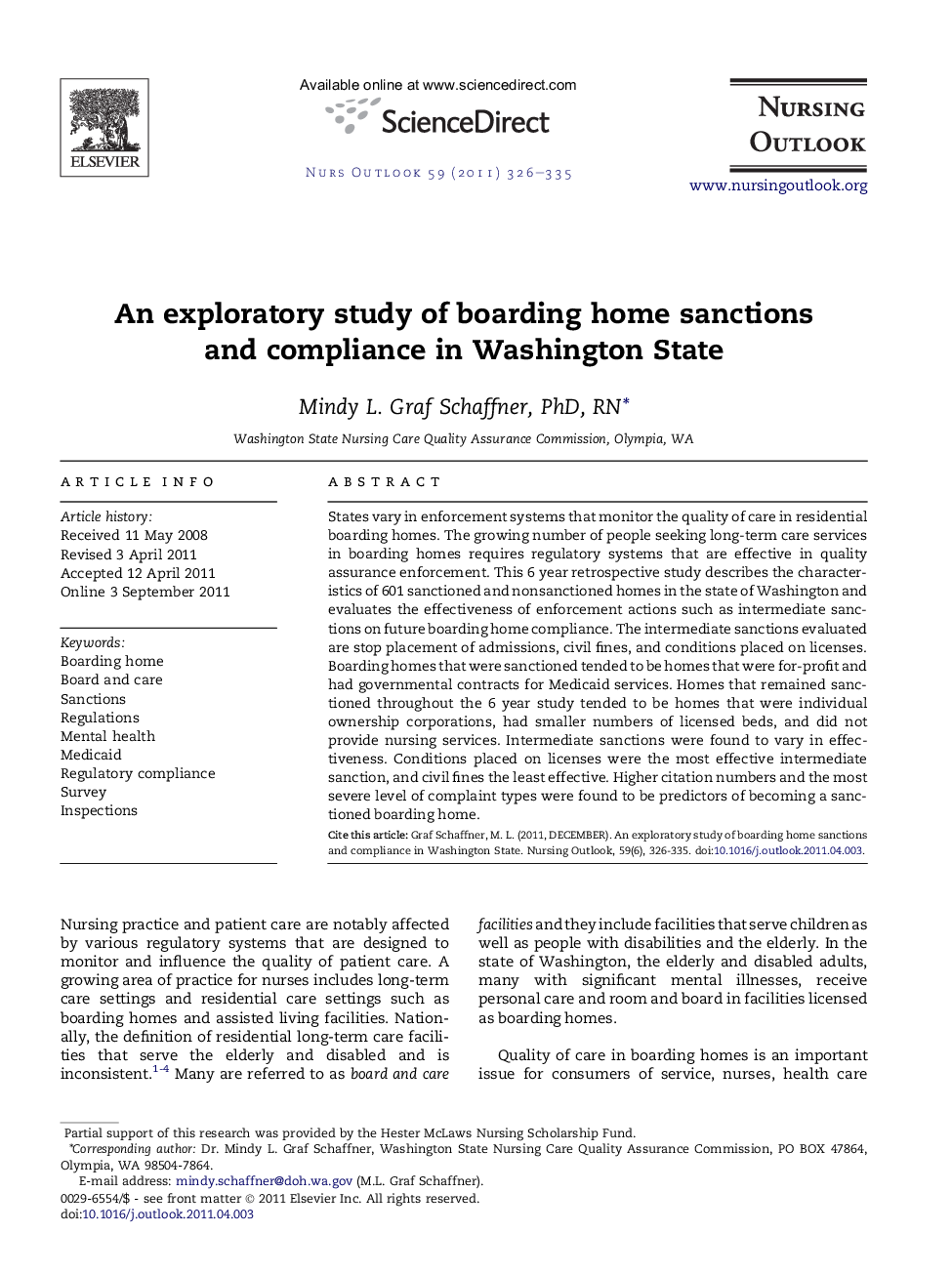| Article ID | Journal | Published Year | Pages | File Type |
|---|---|---|---|---|
| 2678520 | Nursing Outlook | 2011 | 10 Pages |
Abstract
States vary in enforcement systems that monitor the quality of care in residential boarding homes. The growing number of people seeking long-term care services in boarding homes requires regulatory systems that are effective in quality assurance enforcement. This 6 year retrospective study describes the characteristics of 601 sanctioned and nonsanctioned homes in the state of Washington and evaluates the effectiveness of enforcement actions such as intermediate sanctions on future boarding home compliance. The intermediate sanctions evaluated are stop placement of admissions, civil fines, and conditions placed on licenses. Boarding homes that were sanctioned tended to be homes that were for-profit and had governmental contracts for Medicaid services. Homes that remained sanctioned throughout the 6 year study tended to be homes that were individual ownership corporations, had smaller numbers of licensed beds, and did not provide nursing services. Intermediate sanctions were found to vary in effectiveness. Conditions placed on licenses were the most effective intermediate sanction, and civil fines the least effective. Higher citation numbers and the most severe level of complaint types were found to be predictors of becoming a sanctioned boarding home.
Related Topics
Health Sciences
Nursing and Health Professions
Nursing
Authors
Mindy L. PhD, RN,
